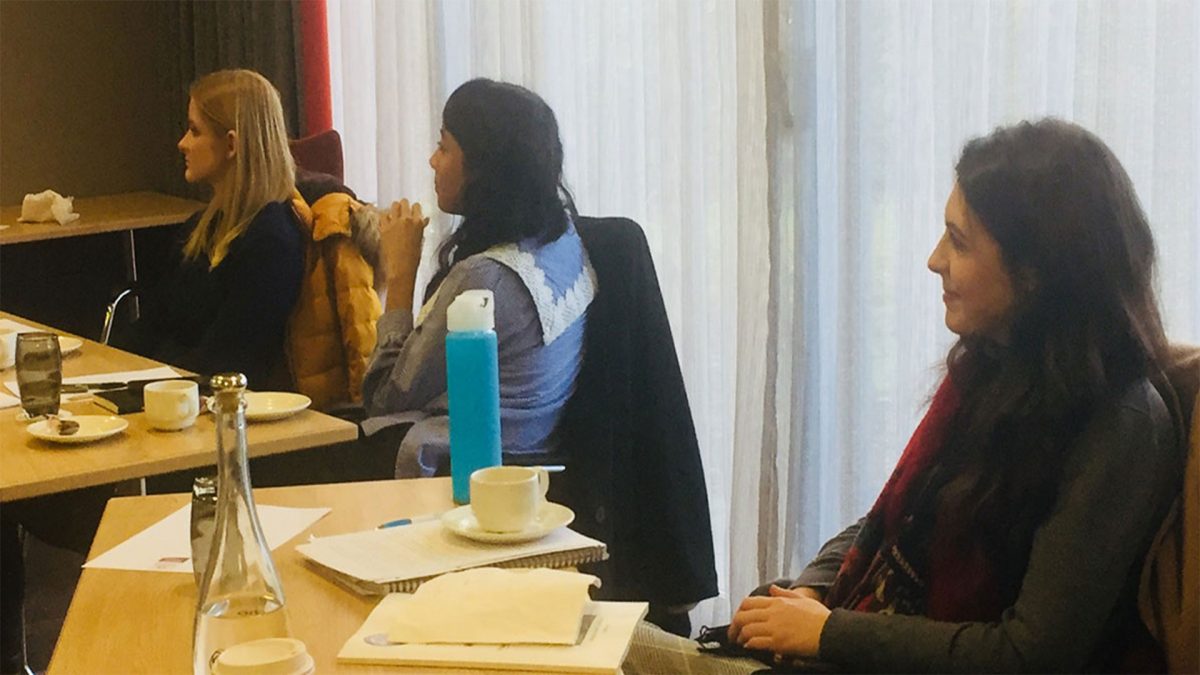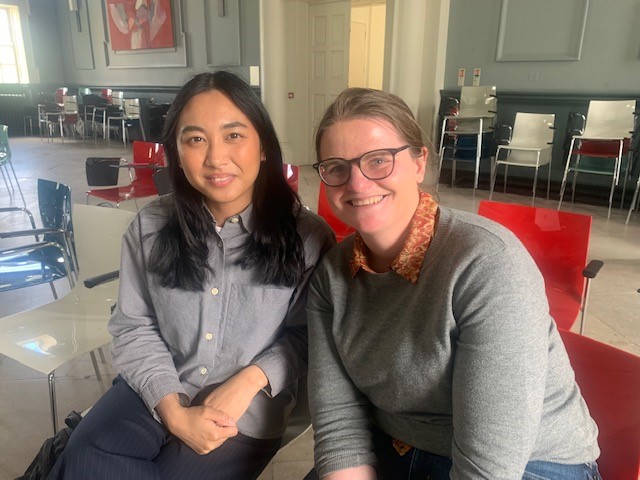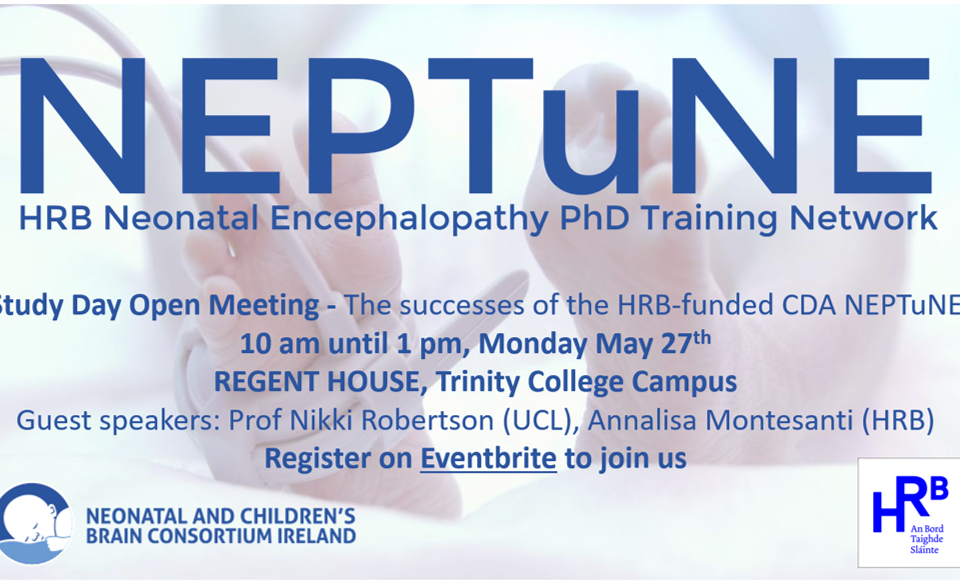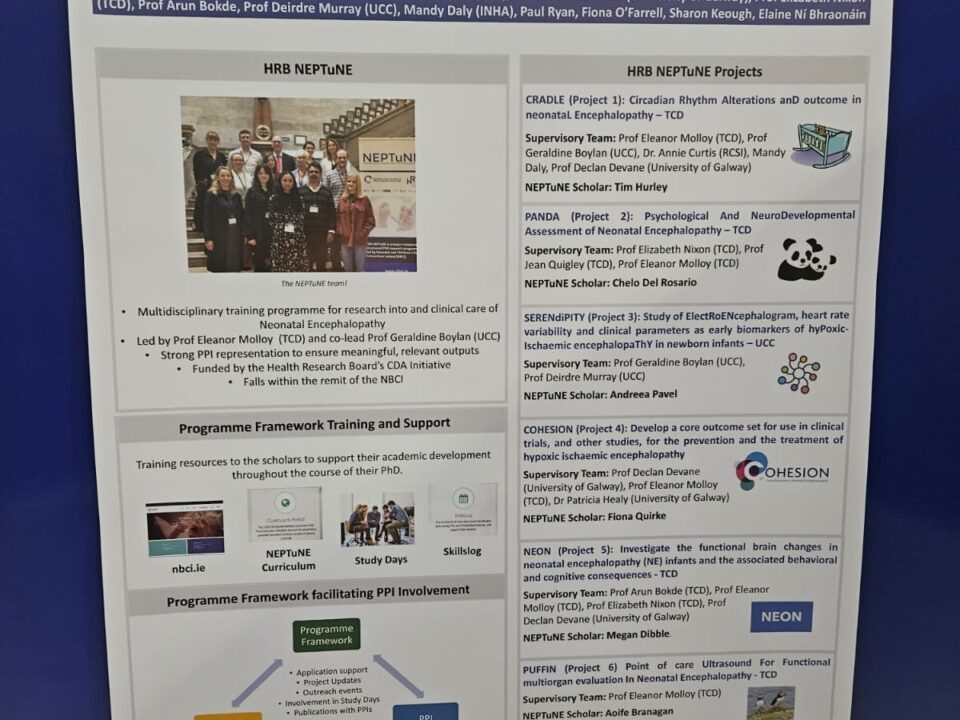HRB NEPTuNE Study Day

Therapeutic Hypothermia
November 28, 2018
You, your baby and the NICU
December 17, 2018Our five HRB NEPTuNE Scholars, Andreea Pavel, Megan Dibble, Tim Hurley, Chelo Del Rosario and Fiona Quirke, convened in the Clayton Hotel in Galway on Friday, December 7th for their first Study Day.
The Study Day is part of the structured training framework that is provided by partner CRDI. The objective of the day is to provide scholars with transferable skills training and insight into the various disciplines that are covered by the programme, to facilitate inter-project discussion, to support scholars in availing of CRDI’s training resources (Skillslog, Moodle Portal).
Professor Eleanor Molloy opened the session with a lecture on ‘Journal Publishing’. Based on her experience as a journal editor, she gave students an insight into both sides of the publication process; how to get published and how to deal with publication rejection.
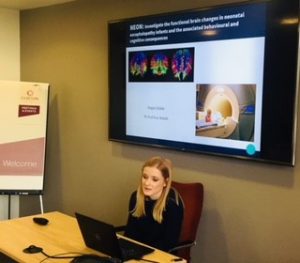
NEPTuNE Scholar Megan Dibble describes her NEON project to team.
This was followed by a short talk from NEPTuNE programme manager, Beth Corcoran, explaining how the Skillslog resource could be used in conjunction with Study Day and how the website can be used to promote and disseminate the scholar’s research, as well as keeping PPIs informed on the programme’s
progress.
Professor Molloy’s second presentation was on ‘Publication Review’. This gave scholars an overview of how the reviewing process worked and how they themselves could participate in the reviewing process.
Each of the five scholars gave excellent descriptive presentations on their individual projects. The presentations provoked much discussion with the attending PIs (Professor Eleanor Molloy, TCD, and Professor Declan Devane, NUIG) as well as giving the individual scholars an insight into their peer’s project research.
Professor Declan Devane, NUIG, gave a workshop on Core Outcome Sets (COHESION) which is one of the core strands of research on the NEPTuNE programme. This session emphasised the relevance and importance of Core Outcome Sets for research in general and gave a backdrop to what the COHESION project will mean for the NEPTuNE programme overall.
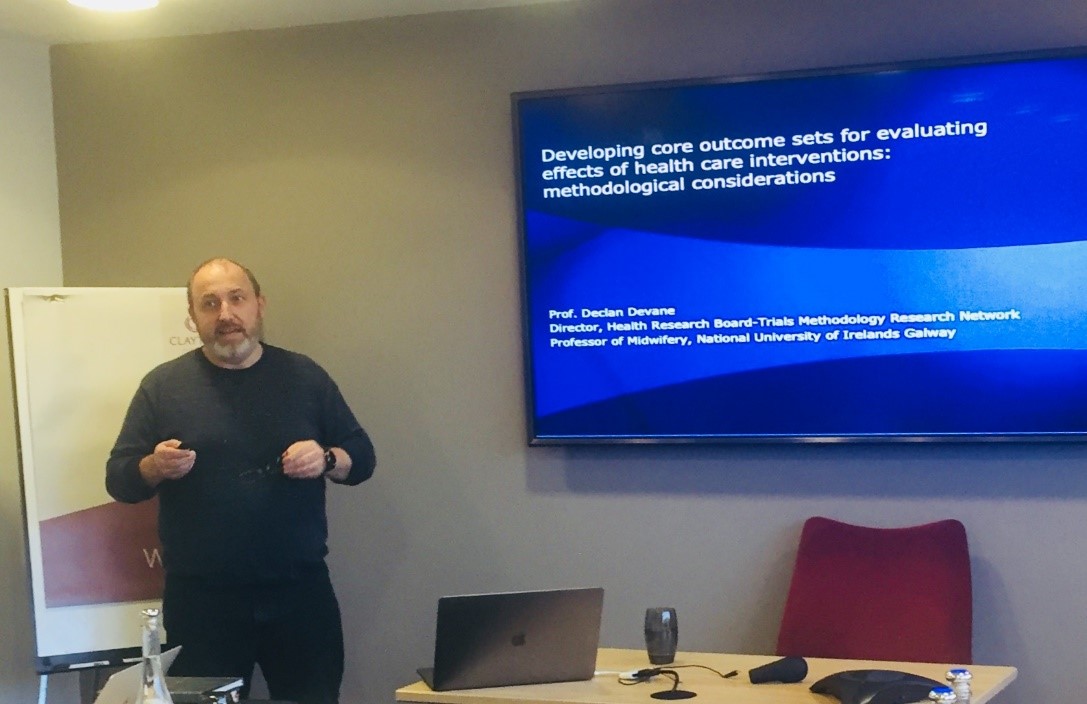
Prof Declan Devane, NUIG, presents Core Outcome Sets
Finally, the five scholars participated in a session of self-directed discussion. This hour-long session gave them an opportunity to describe their research approaches and methods, and to explore some of the challenges that they anticipated with their research. This team exercise enabled them to draw on each other’s expertise and skills to provide possible solutions to their research challenges.


